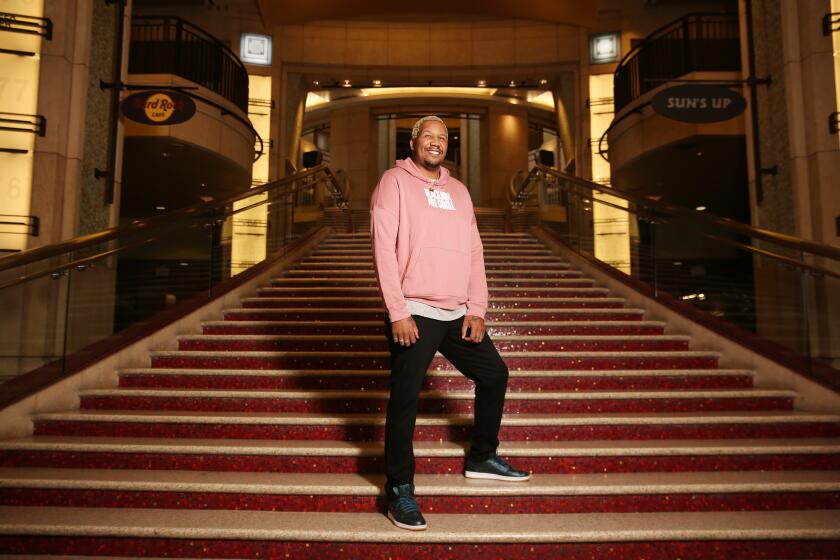Short ‘Two Distant Strangers’ makes Oscars history. Here’s why it’s controversial
Compton’s Travon Free made history Sunday as the first Black filmmaker to win the Oscar for live-action short film.
Co-directed by Free and Martin Desmond Roe, “Two Distant Strangers” bested fellow nominees “Feeling Through,” “The Letter Room,” “The Present” and “White Eye.” Free also wrote the screenplay about a Black graphic artist (rapper Joey Badass) who gets stuck in a “Groundhog Day”-esque time loop that always ends in his killing by a white police officer (Andrew Howard).
“Oftentimes we find ourselves the only Black person in the room, and it takes a strong mind-set to not let that change you in a negative way,” Free told the Los Angeles Times in April after Oscar nominations were announced.
“I think L.A. and Compton was a huge part of what made me strong enough to be a 6-foot-7-inch Black man who is also a filmmaker and TV show writer in an industry where there ain’t very many of me,” he said.
Oscar-nominated shorts directors Kris Bowers and Travon Free are enjoying the spotlight, and the chance to tell meaningful stories about Black lives.
Leading up to the Academy Awards, “Two Distant Strangers,” which is streaming on Netflix, has been the subject of controversy. Critics have argued that the film’s repetitive depiction of anti-Black violence falls under the umbrella of “Black trauma porn” that is “more triggering than thought-provoking.”
In conversation with The Times, Free explained that the disturbing story is meant to convey the “cyclical nature of the trauma we experience just living in this country on a day-to-day basis.” He cited the recent killing of Daunte Wright, who was shot by white former police officer Kim Potter in Minnesota while another white former police officer, Derek Chauvin, stood trial for the murder of George Floyd.
“As often as the ‘Groundhog Day’ trope is used now to tell stories, and they’ve gotten more and more creative, this was the first time that it felt like an actual metaphor for something,” Free said earlier this month. “It’s a metaphor for what it is like to be Black in America. It is the loop.”
Times staff writers Greg Braxton and Jevon Phillips contributed to this story.
More to Read
Only good movies
Get the Indie Focus newsletter, Mark Olsen's weekly guide to the world of cinema.
You may occasionally receive promotional content from the Los Angeles Times.












